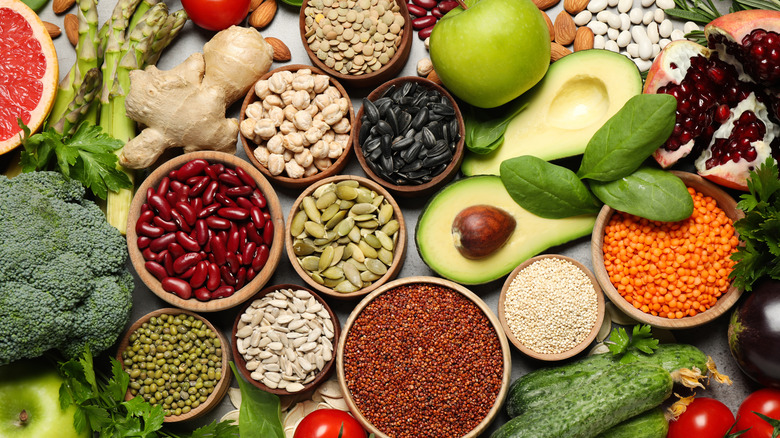New Study Reveals Why Flavanols Could Be A Diet Game Changer
Sometimes it feels like there's a new diet or extreme weight loss strategy bouncing around the internet every week. While some of them, like the all celery diet, are comical, some others like diet teas that more or less act like laxatives can be dangerous, as Blogilates points out. This is especially true when social media seems to be flooded with so-called "success stories." Because of this, it's hard to know what is safe and what is harmful. Diet culture and the multibillion-dollar diet industry profit off this misinformation in the hopes that consumers will continue to buy weight-loss products without regard for overall health. According to Market Research, the diet industry grew about 4% to 72.7 billion dollars in 2018, and experts believe it will climb another 2.6% every year through 2023. There's clearly lots of money to be made selling people items and services that set them up to fail and thus, continue to buy into the industry. Much of the weight-loss culture focuses on physical appearance and beauty standards but being anti-diet industry isn't the same as being anti-health (via Good Housekeeping). There are many ways to safely prioritize overall health with a diet to help address health concerns like high blood pressure or gastrointestinal issues while also losing weight without being forced to buy into the weight-loss industry through primarily ineffective and sometimes dangerous diet plans.
Flavanols can help with many health concerns
Flavanols are a group of phytochemical compounds found in plant-based food sources and are one of the compounds found in "superfoods," according to Nutrition and Health Info-Sheet from the University of California Davis. Some high flavanol foods are apples, cranberries, beans, broccoli, and kale. Some foods with high concentrations of some flavanols have been linked to reduced risk of certain cancers, cardiovascular disease, and diabetes, The University of California Davis reports. A new study published by the Shibaura Institute of Technology in Nutrients suggests that increased consumption of flavanols can contribute to the process where the body uses fat storage to generate heat reports Medical Xpress. One study from the American Academy of Neurology even found that consuming more flavanols could reduce the risk of developing Alzheimer's and dementia. The Journal of Nutritional Science reports that flavanols have been found to be anti-inflammatory, anti-oxidative, and anti-carcinogenic, and some research shows that flavanols can help lower cardiovascular mortality rate and overall risk of chronic heart disease. And, according to the CDC, heart disease kills roughly 659,000 people per year in America. These findings can be a total game changer for anyone looking to improve their overall physical health or address specific health concerns using diet as a tool.

